NEWBORN CHECKLIST: EVERYTHING YOU NEED TO FEED A NEW BABY IN 2024
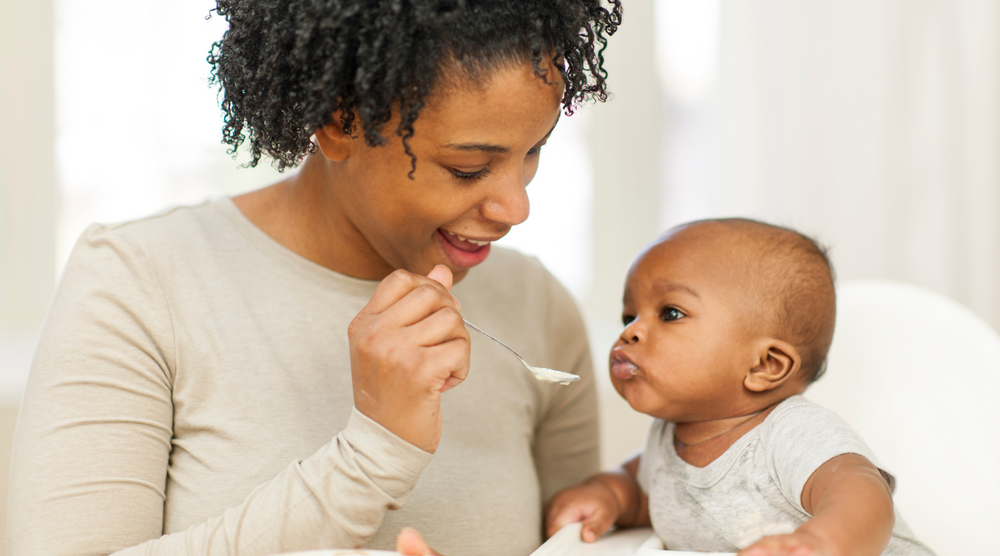
This blog post was originally posted on www.leleki.com & reviewed by Dr. Pierrette Poinsett A veteran board-certified pediatrician with three decades of experience. She holds an MD from the University of Chicago and a BS in Chemical Engineering from The University of Pennsylvania. Dr. Poinsett is a diplomat of the American Board of Pediatrics.
As a new mom-to-be, you may be wondering what you need to do and what baby essentials you need to purchase to feed your newborn baby. Feeding your baby is one of the most important, yet sometimes challenging tasks as a parent.
Whether you decide on formula or breast milk, you should have a few newborn feeding essentials ready! And yes, there are many more items of baby gear you can purchase to make your first baby's life even easier & more comfortable when baby arrives.
In this article we will focus on the essentials for your newborn baby. To view a full baby checklist a check out our Meloddi Checklist.
What do I need for newborn baby feeding?
Feeding your newborn baby can seem intimidating at first, but with the right tools and guidance, it can be a joyous and fulfilling experience. Remember to trust your instincts, take your time, and give yourself grace as you navigate this new chapter of motherhood with your first baby.
With these baby essential items, you'll be on your way to healthy and happy feedings for your little one.
The primary source of nutrition for your newborn baby's arrival will come from formula or breast milk. Let's jump in to the baby essentials you'll need to get started.
BABY ESSENTIALS - FIRST 4-5 MONTHS
For all newborn babies:
-
Baby bottles
-
Bottle cleaning brush
-
Burp cloths
-
Cloth bibs
-
Nursing pillow and Linen Nursing Pillow cover - Feeding your newborn baby can be tiring on both you and your baby's arms. A pillow provides the necessary support to help you and your baby remain comfortable during the entire feeding time.
-
Insulated bottle carrier
No matter how you choose to feed your baby, remember that fed is best. However, if you choose to breastfeed, make sure to invest in a high-quality pump (insurance may cover part of this expense), storage bags, feeding bottles, as well as a comfortable nursing pillow for both you and baby.
If you choose to go with formula, baby essentials you'll need include good-quality formula, sterilized bottles, and nipples.
For breastfeeding:
-
Breast pump
-
Breast milk storage bags
-
Nipple cream
-
Nursing bra
-
Nursing pads
-
Nursing cover - If you choose to breastfeed your newborn baby in public, a nursing cover will allow you to do so discreetly without exposing yourself.
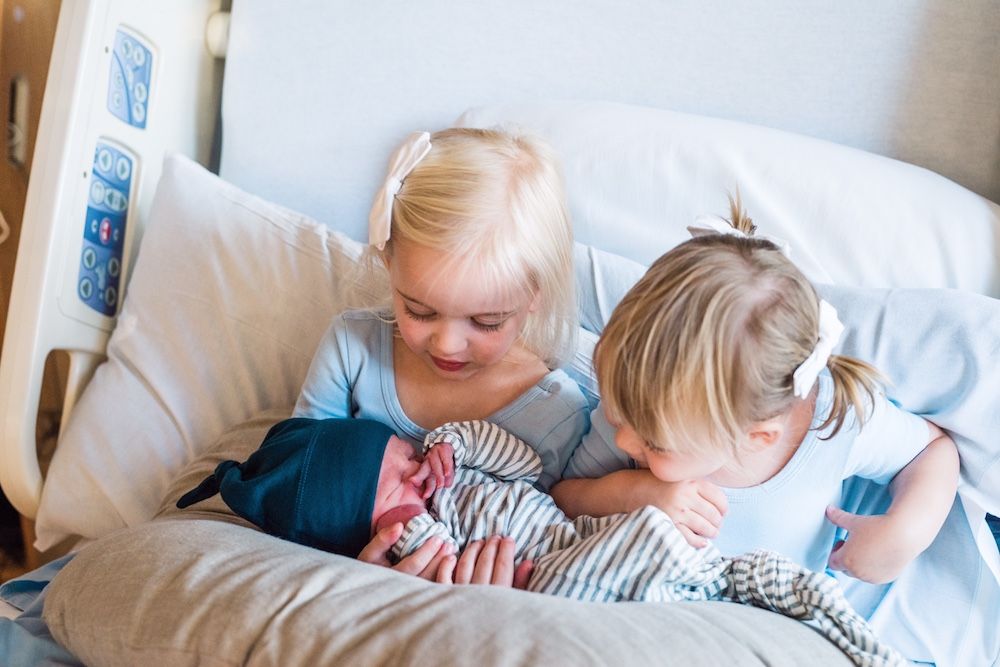
BABY BOTTLES
It’s obvious why this is a must for formula feeding, but why for breastfeeding? Even if your plan is to 100% breastfeed your baby, having at least one bottle ready is a smart thing to do.
Here are 4 reasons why:
-
Give someone else the opportunity to feed your newborn baby. Whether you’re exhausted and need a break or want your partner to experience that beautiful moment of feeding your baby, a bottle will help you do that.
-
You get sick and are unavailable or taking medication that’s not breastfeeding-friendly. This could be a great time to use frozen breast milk reserves.
-
You’ll be away from your newborn baby for several hours - e.g., going back to work. Babies feed much more often than (most) adults eat. If you need to be away, your baby will need a caretaker to bottle feed them.
-
You don’t produce enough milk and need to switch to formula (if recommended by your pediatrician).
BOTTLE CLEANING BRUSH
A bottle brush will help you remove any milk residue or baby formula from the nipple, bottle, and any other parts depending on the bottles you choose. Always keep a separate brush for your baby bottles. Though not necessary, many parents choose to invest in a bottle warmer as well.
BURP CLOTHS
Burp cloths are versatile and can come in quite handy, especially in the first months with baby. They help protect your clothes and/or bare shoulders from spit up when burping your newborn baby.
They can be used to wipe off spit up and drool from your baby, you, baby clothes, your baby carrier, couch, [insert here any other place near your baby].
CLOTH BIBS
As your newborn baby grows, they tend to drool a lot and have increased saliva production. It's essential to have enough cloth diapers and plenty of bibs and drool cloths to keep baby clean.
Cloth bibs are great for catching drool and protecting your baby's skin clothes during feeds. They can also be used when your baby starts solids to prevent stains on your baby’s clothes… at least from the area the bib covers.
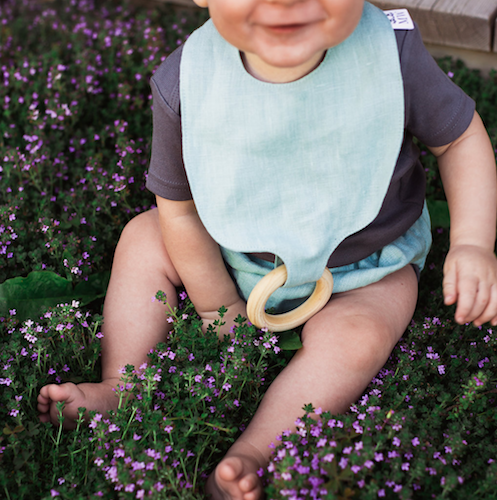
BREAST PUMP
Your breasts produce milk based on demand. If your newborn baby demands more milk, you breasts produce more. If your baby stops breastfeeding, your breasts stop producing milk.
After baby is born, it may take a little while for you breasts to adjust to producing the right amount of milk for your baby. In those early days you may experience engorgement (oversupply) or low supply.
A few reasons why you might consider pumping:
-
To relieve engorgement
-
To maintain or increase your supply, including when you're away from baby or taking medicine that is not breastfeeding-friendly (recall: if breasts are not stimulated, supply goes down)
-
To collect milk while away or to have someone else feed your baby
-
To provide breastmilk for a sick or premature baby in the hospital or birthing center
-
To build a supply to store in the freezer in case needed, including for day care or if you get sick
BREAST MILK STORAGE
If you plan to build a stock of breastmilk in the freezer, the right storage will make a difference!
Plastic breast milk storage bags are the most common option on the market, but there are also silicone and glass options available. Regardless of material you choose (silicone, glass, or plastic), make sure that they are phthalate and BPA free, and made specifically for breastmilk storage in the freezer. Some containers might not be suitable for freezing.
You may consider building a stock:
-
In case you get sick and you need medication that is not breastfeeding-friendly
-
Your baby will be attending day care / you will be away for extended periods and you want to continue feeding breast milk
-
You want to continue feeding breast milk for a few more weeks after you stop breastfeeding
BABY ESSENTIALS - 6 MONTHS+
Solid feeding
Most babies begin to develop an interest in solid foods some time after 6 months of age. The American Academy of Pediatrics says that your baby should be capable of sitting with good head control, be interested in the food and should be capable of swallowing something that is given to him by the spoon.
For this milestone the recommend these most important baby essentials:
For all babies:
-
High chair (4mo+)
-
Baby spoons (4mo+)
HIGH CHAIR
Safe place for baby to eat solids when ready (somewhere between 4 and 6 months) and approved by your pediatrician. Some chairs also recline and can be used for bottle feeding a younger baby.
You might not want to wait until month four to get your baby's high chair, especially since some pediatricians recommend letting your baby experience the high chair before it's time for solids.
If doing so, make sure the high chair has the right support for baby's head and recline appropriate for younger babies.
BABY SPOONS
These are made of soft materials to avoid accidentally hurting the baby's gums and mouth. Remember that little ones ready for solids may also be teething and biting everything… including their spoons.
Trust Yourself
Feeding your beautiful bundle of joy should be an enjoyable experience, one that brings you peace and satisfaction. As a parent, stocking up on baby's feeding essentials is vital - the important groundwork for their precious first few months in this world!
From breast milk to formula-feeding items to baby equipment such as bottles & sterilizers – there are many baby must haves available to soothe those newborn days ahead. Ultimately, when you bring baby home, your baby just needs you!


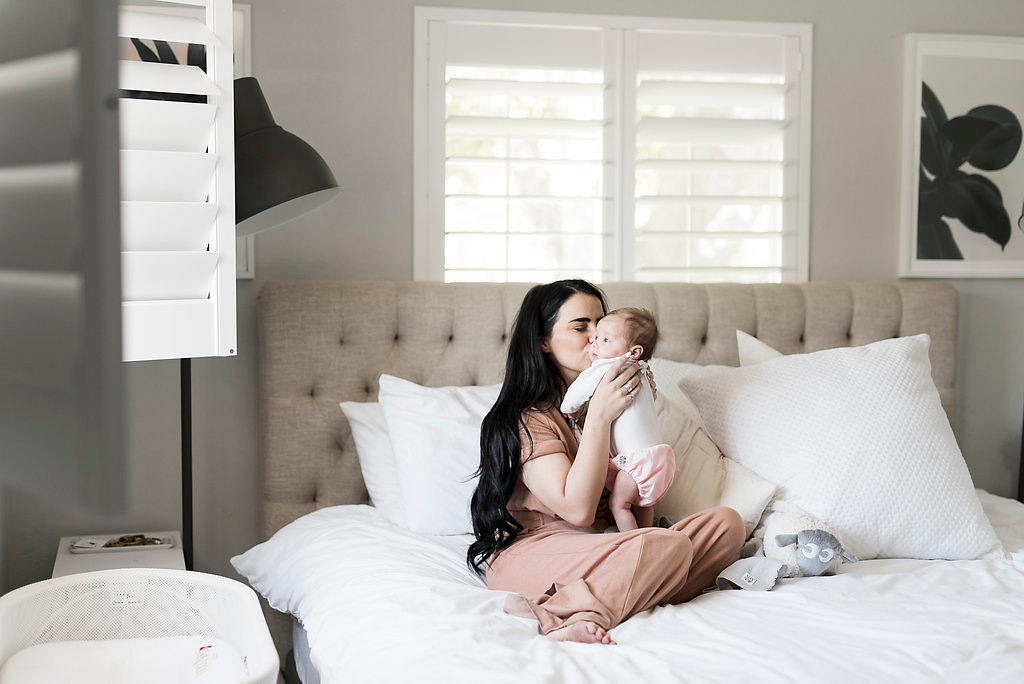
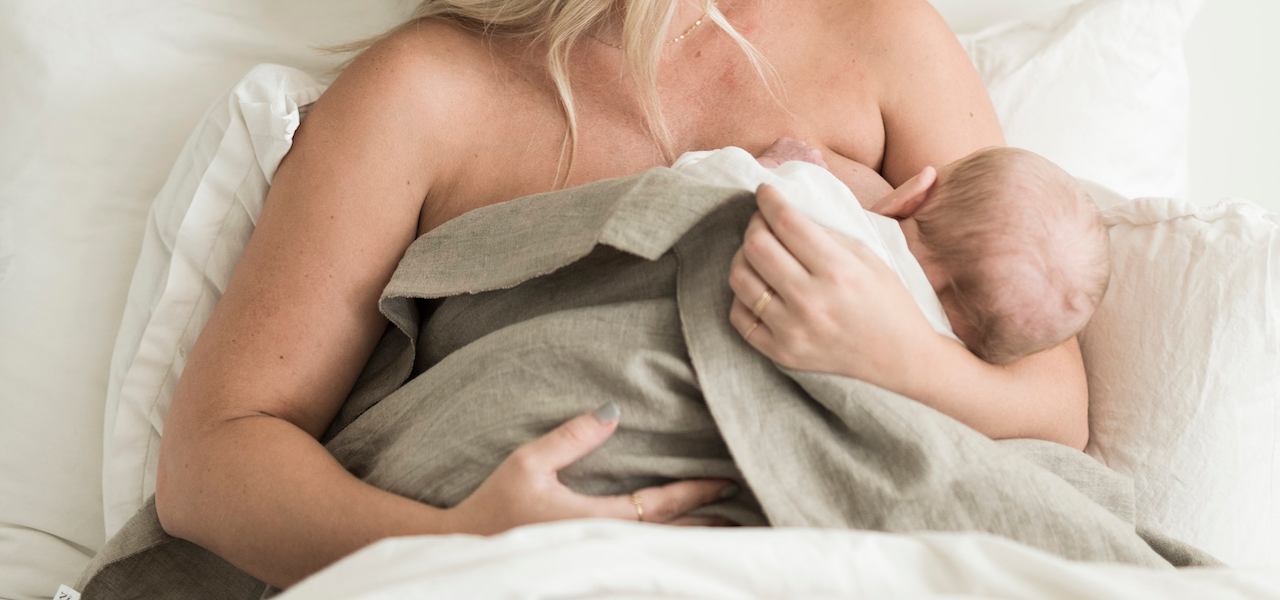
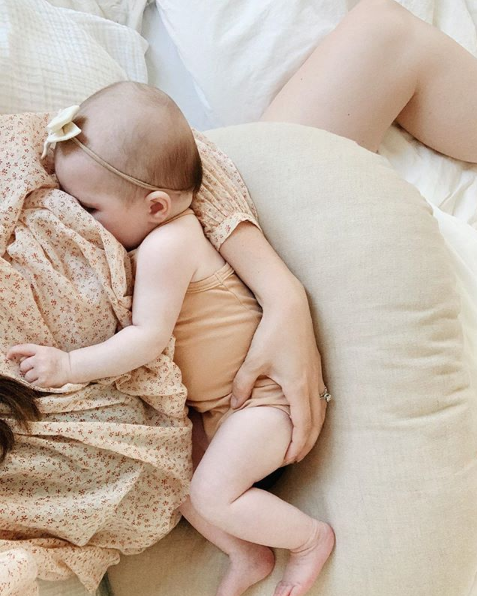
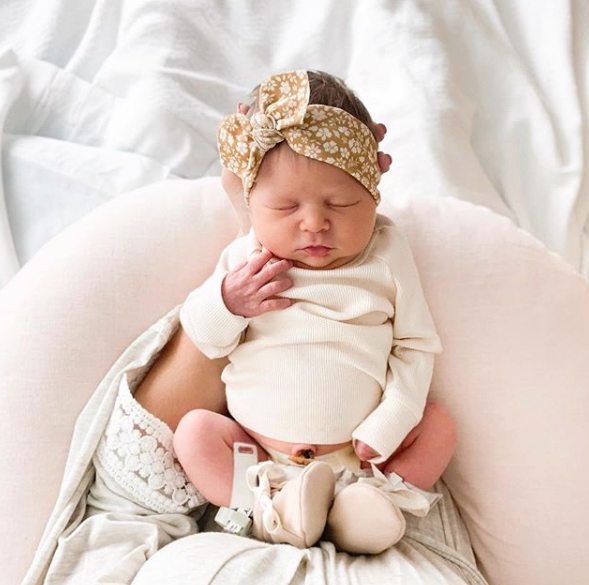
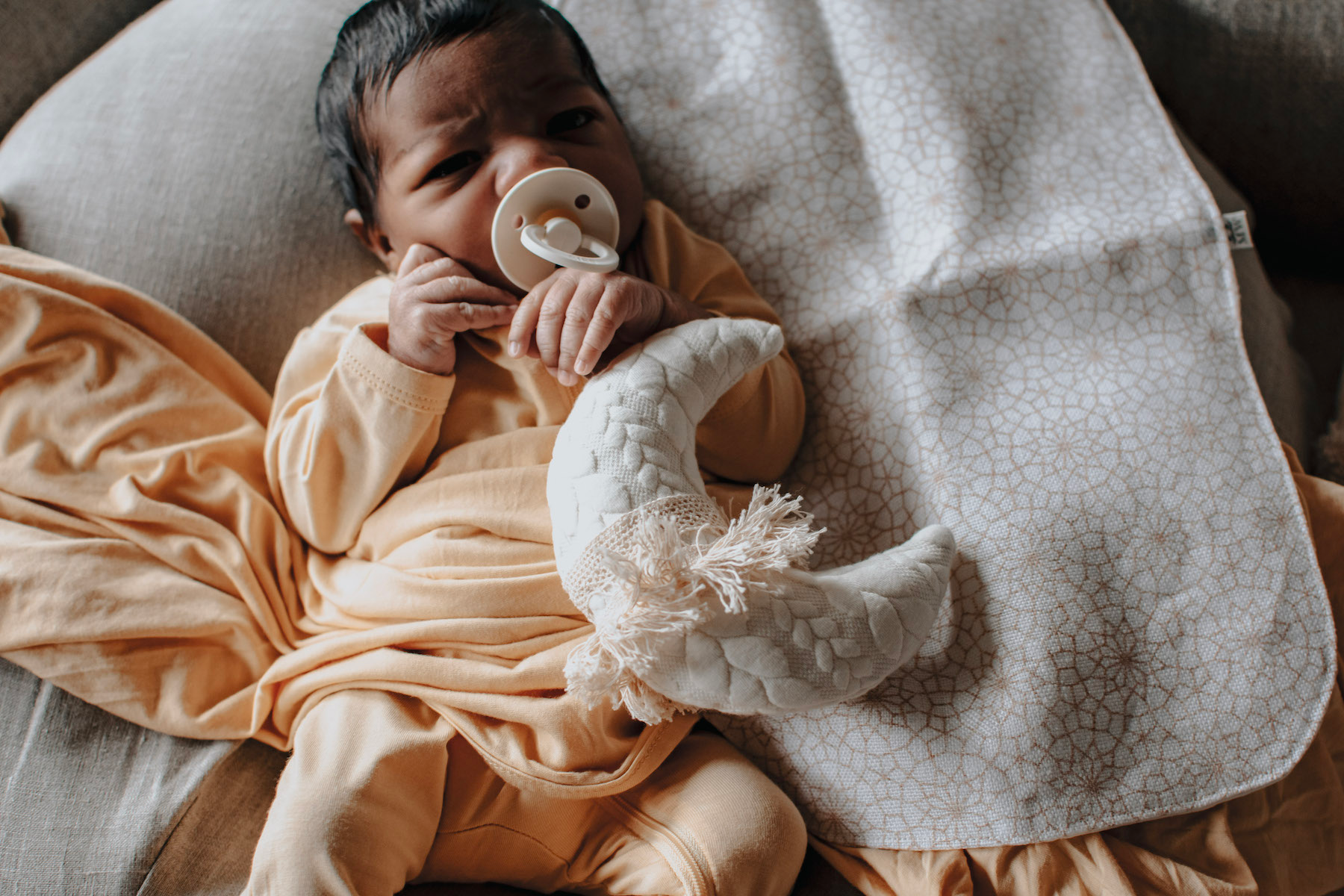
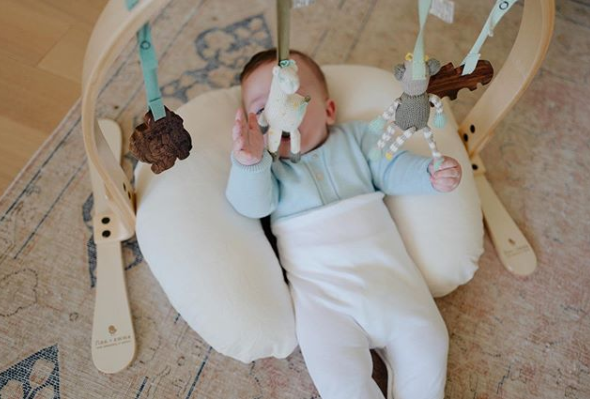
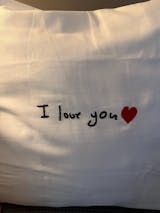
Leave a comment